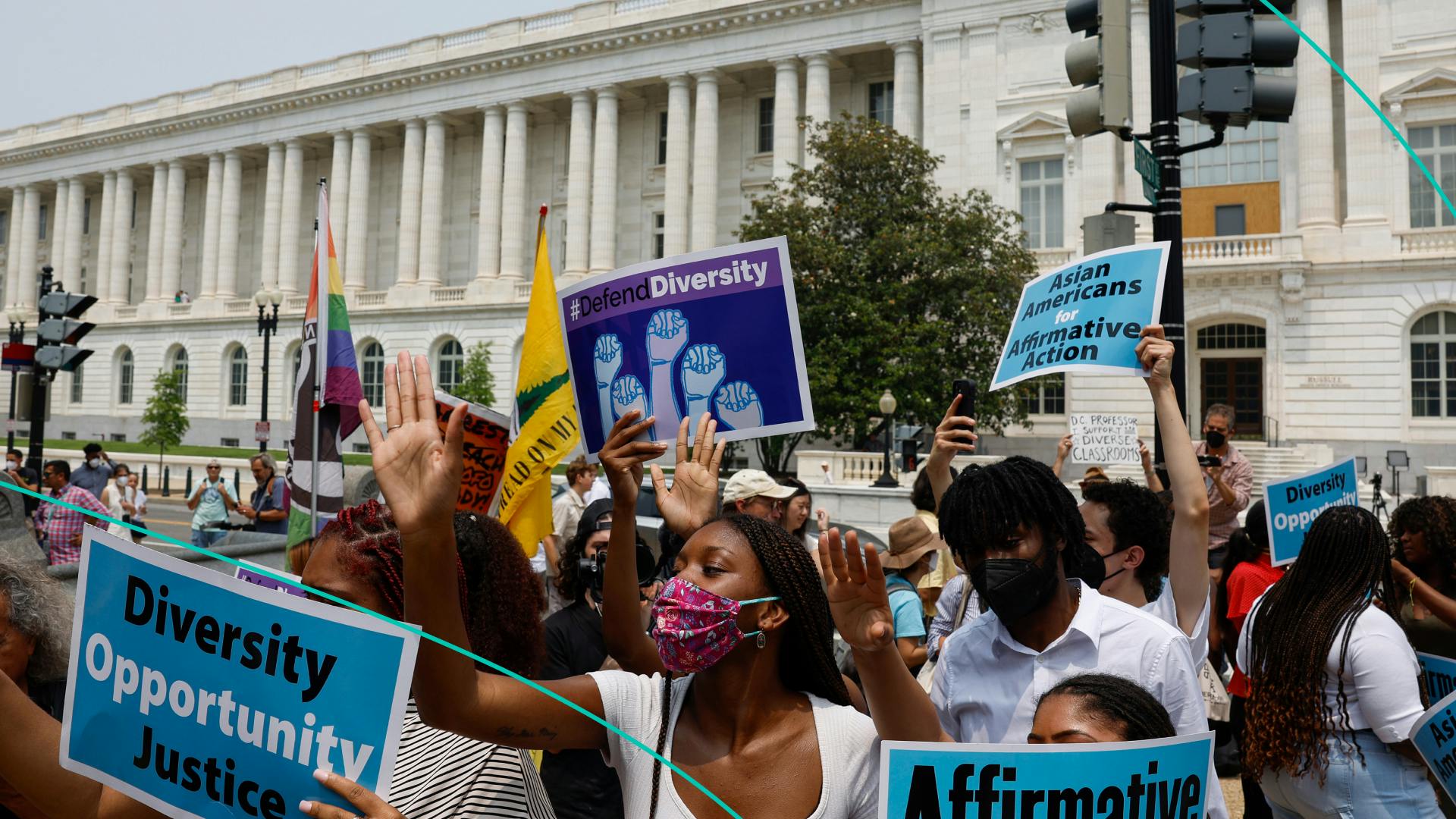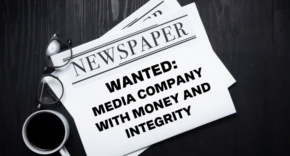
Affirmative Action
The Story
The Supreme Court struck down affirmative action in college admissions.
Catch me up.
Yesterday, the high court ruled 6 to 3 that race-based admissions in US colleges and universities are unconstitutional. Since the ‘60s, academic institutions — including some of the most elite — have used affirmative action as a component of admissions to improve diversity on campuses. Over the years, SCOTUS has repeatedly ruled in favor of the practice. The most recent challenges alleged the admissions process at Harvard University and the University of North Carolina discriminated against white and Asian students. Now, the Supreme Court has agreed and said that race cannot be explicitly used to determine admissions.
What happens now?
Private and public universities will need to adjust their admissions criteria and figure out how to maintain diverse student bodies. Nine states — including California, Florida, and Oklahoma — already ban affirmative action and weigh things like family income and education history in the admissions process. Schools like UCLA have turned to targeted recruiting programs to help boost diversity. However, university officials have said there’s no substitute for affirmative action and expect the ruling to affect the college enrollment of Black and Latino students nationwide. After California banned affirmative action, UCLA and UC Berkeley initially saw a nearly 50% drop in Black and Latino first-year enrollment.
What are people saying?
Republicans celebrated the decision, saying it helps ensure fairness. In the majority opinion, Chief Justice John Roberts wrote that students should be treated “based on his or her experiences as an individual—not on the basis of race.” In dissent, Justice Sonia Sotomayor said “ignoring race will not equalize a society that is racially unequal.” Civil rights groups said the decision displayed “a willful ignorance of our reality.” Meanwhile, President Biden directed the Education Dept to provide guidance to universities on how to move forward and still ensure diversity.
theSkimm
Americans are split across racial and political lines on how they feel about affirmative action. Now, as it comes to an end in college admissions, many are questioning the future of academic enrollment and the ripple effects it could have on society. In the meantime, the high court’s rulings on student loan forgiveness and LGBTQIA+ rights are expected today.
Eyes On: What The Ruling Could Mean For Corporate Diversity
The Supreme Court’s decision on affirmative action has legal experts warning about its potential impact on the corporate world. It’s already illegal for employers to consider race in their hiring decisions. However, one study estimates 80% of US employers have some sort of diversity, equity, and inclusion (DEI) program. Now, the high court’s ruling has experts warning of potential legal challenges against corporate hiring practices and initiatives, which are already being challenged as unconstitutional.
SCOTUS’s ruling also has many worried about how a decrease in diversity in higher education could affect the pool of job applicants. Already, Black and Latino employees are underrepresented in fields like tech and medicine and C-Suite-level positions. Employers worry that it could get worse. Companies like Apple and General Electric had urged the Supreme Court to keep affirmative action, arguing that “racial and ethnic diversity enhance business performance.” Meanwhile, critics allege the DEI programs are inherently discriminatory and violate civil rights law.
And Also…This
What people are talking about…
Parkland, FL. Yesterday, a jury acquitted a former school resource officer of all charges. In 2018, Scot Peterson was on duty when a gunman entered Marjory Stoneman Douglas High School — killing 17 people. State prosecutors accused Peterson of failing to follow his active shooter training. However, Peterson maintained he couldn’t intervene because he didn’t know where the shots were coming from. Now, he’s been found not guilty of 11 counts, including child neglect.
…Oh and speaking of the courts, a grand jury decided rapper Travis Scott won’t face criminal charges for the crowd surge at his 2021 Astroworld Festival that killed 10 people.
Where there are updates…
France. Yesterday, French prosecutors preliminarily charged the police officer accused of shooting and killing a 17-year-old with voluntary homicide. The charge comes as Nahel M’s death continues to spark protests and unrest in Paris. Officials have deployed more than 40,000 officers across France, set a curfew in the suburbs of Paris, and paused major transportation services in the city through the weekend.
What’s not so sweet…
Aspartame. Yesterday, Reuters reported that the World Health Organization (WHO) could be declaring the artificial sweetener as a possible carcinogen as soon as next month. Regulators have considered aspartame safe for consumption for years, saying that it could take someone drinking more than 18 cans of diet soda every day for it to be a risk. Now, listing the sweetener as a possible carcinogen could push for more research.
Who wants a bigger cut of the fortune…
Vanna White. The co-host of “Wheel of Fortune” is reportedly negotiating her contract after Pat Sajak announced he’s retiring. White reportedly wants to earn at least half of Sajak’s $15 million salary, after earning $3 million annually for the past 18 years. Time to spin things in a different direction.
Original Article: https://www.theskimm.com/newsletter/daily-skimm/untitled-entry-2023-05-08-at-20-57-41







